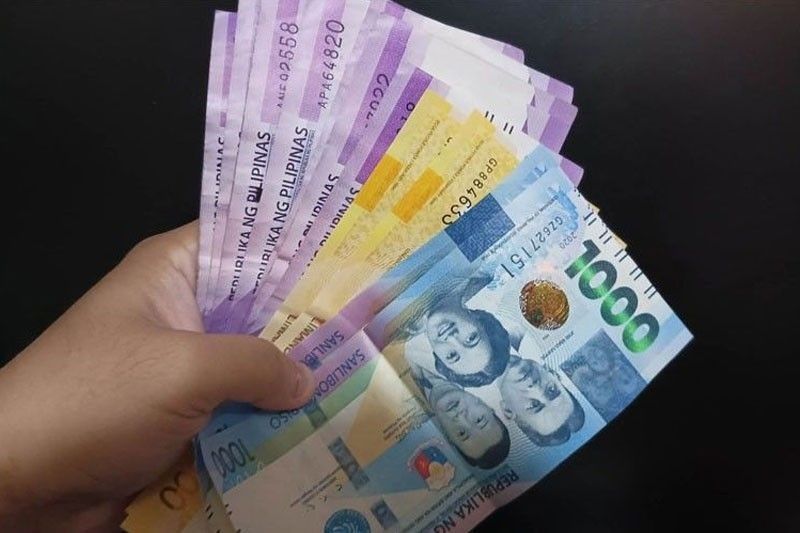Philippines exit from FATF gray list in peril

MANILA, Philippines — The recent Marawi bomb blast and the impact of the $81-million Bangladesh bank heist may derail the removal of the Philippines from the gray list of global dirty money watchdog Financial Action Task Force (FATF), according to Anti-Money Laundering Council chairman and Bangko Sentral ng Pilipinas (BSP) Governor Eli Remolona Jr.
Remolona told reporters that the Philippines has only until next month to address the gaps in its regime to counter money laundering as well as terrorist and proliferation financing.
The AMLC chief pointed out that the government has adopted an “all hands on deck” approach to address the remaining deficiencies.
“We’re doing everything we can to show that we’re making progress in all those areas,” Remolona assured the public.
The Philippines was retained in the list of jurisdictions under increased monitoring in October as it has yet to address five of the 18 deficiencies in anti-money laundering/combating the financing of terrorism (AML/CFT) controls.
In June 2021, the Philippines made a high-level political commitment to work with the FATF and Asia-Pacific Group on Money Laundering (APG) to strengthen the effectiveness of its AML/CFT regime after it was included anew in the gray list.
The gaps in the October assessment include demonstrating that effective risk-based supervision of designated non-financial business and professions (DNFBPs) is occurring, as well as demonstrating that supervisors are using AML/CFT controls to mitigate risks associated with casino junkets.
The watchdog also wants the Philippines to enhance and streamline the access of law enforcement agencies to beneficial information and take steps to ensure that such information is accurate and up-to-date.
Furthermore, the FATF instructed the Philippines to demonstrate an increase in money laundering investigations and prosecutions in line with risk, as well as an increase in the identification, investigation and prosecution of terrorism financing cases.
The FATF urged the Philippines to swiftly implement its action plan to address the above-mentioned strategic deficiencies as soon as possible as all deadlines expired in January this year.
The global dirty money watchdog is set to release the updated list in February next year.
“We will know whether you (we) stay on the list, or leave the list entirely, which is what you want,” Remolona added.
The FATF calls on those jurisdictions under the gray list to complete their action plans expeditiously, and within the agreed timeframes. It does not call for the application of enhanced due diligence measures to be applied to these jurisdictions.
The FATF Standards do not envisage de-risking or cutting-off entire classes of customers, but calls for the application of a risk-based approach.
According to Remolona, the chance that the Philippines will be included in the black list, which currently includes the Democratic People’s Republic of Korea, Iran, and Myanmar, is highly unlikely.
“There might be a chance of you (us) going into the black list. But its very unlikely,” he clarified.
In 2002, the FATF placed the Philippines in the list of non-cooperative countries and territories, or the blacklist for having no legal anti-money laundering framework.
Remolona explained that fewer correspondent banks are willing to deal with the Philippines since it was placed in the gray list in June 2021 and this could get worse if the country is placed in the black list.
He cited the recent deadly explosion that ripped through a Catholic mass service at the gym of the Mindanao State University (MSU) in Marawi City that left four dead and at least 50 wounded.MANILA, Philippines — The recent Marawi bomb blast and the impact of the $81-million Bangladesh bank heist may derail the removal of the Philippines from the gray list of global dirty money watchdog Financial Action Task Force (FATF), according to Anti-Money Laundering Council chairman and Bangko Sentral ng Pilipinas (BSP) Governor Eli Remolona Jr.
Remolona told reporters that the Philippines has only until next month to address the gaps in its regime to counter money laundering as well as terrorist and proliferation financing.
The AMLC chief pointed out that the government has adopted an “all hands on deck” approach to address the remaining deficiencies.
“We’re doing everything we can to show that we’re making progress in all those areas,” Remolona assured the public.
The Philippines was retained in the list of jurisdictions under increased monitoring in October as it has yet to address five of the 18 deficiencies in anti-money laundering/combating the financing of terrorism (AML/CFT) controls.
In June 2021, the Philippines made a high-level political commitment to work with the FATF and Asia-Pacific Group on Money Laundering (APG) to strengthen the effectiveness of its AML/CFT regime after it was included anew in the gray list.
The gaps in the October assessment include demonstrating that effective risk-based supervision of designated non-financial business and professions (DNFBPs) is occurring, as well as demonstrating that supervisors are using AML/CFT controls to mitigate risks associated with casino junkets.
The watchdog also wants the Philippines to enhance and streamline the access of law enforcement agencies to beneficial information and take steps to ensure that such information is accurate and up-to-date.
Furthermore, the FATF instructed the Philippines to demonstrate an increase in money laundering investigations and prosecutions in line with risk, as well as an increase in the identification, investigation and prosecution of terrorism financing cases.
The FATF urged the Philippines to swiftly implement its action plan to address the above-mentioned strategic deficiencies as soon as possible as all deadlines expired in January this year.
The global dirty money watchdog is set to release the updated list in February next year.
“We will know whether you (we) stay on the list, or leave the list entirely, which is what you want,” Remolona added.
The FATF calls on those jurisdictions under the gray list to complete their action plans expeditiously, and within the agreed timeframes. It does not call for the application of enhanced due diligence measures to be applied to these jurisdictions.
The FATF Standards do not envisage de-risking or cutting-off entire classes of customers, but calls for the application of a risk-based approach.
According to Remolona, the chance that the Philippines will be included in the black list, which currently includes the Democratic People’s Republic of Korea, Iran, and Myanmar, is highly unlikely.
“There might be a chance of you (us) going into the black list. But its very unlikely,” he clarified.
In 2002, the FATF placed the Philippines in the list of non-cooperative countries and territories, or the blacklist for having no legal anti-money laundering framework.
Remolona explained that fewer correspondent banks are willing to deal with the Philippines since it was placed in the gray list in June 2021 and this could get worse if the country is placed in the black list.
He cited the recent deadly explosion that ripped through a Catholic mass service at the gym of the Mindanao State University (MSU) in Marawi City that left four dead and at least 50 wounded.
A local affiliate of the terrorist network Islamic State (ISIS) has claimed responsibility for the bombing last Sunday.
He added that assessors from the FATF are expected to visit the Philippines to assess the country’s compliance with the remaining deficiencies.
“The problem is the Marawi bombing. It makes them more demanding… So, the bombing implies there was some terrorist financing,” Remolona said.
The BSP chief noted that the global dirty money watchdog has been closely monitoring the Philippines due to the aftermath of the heist wherein hackers stole $81 million from the Bangladesh central bank using a local bank as a conduit.
- Latest
- Trending



























